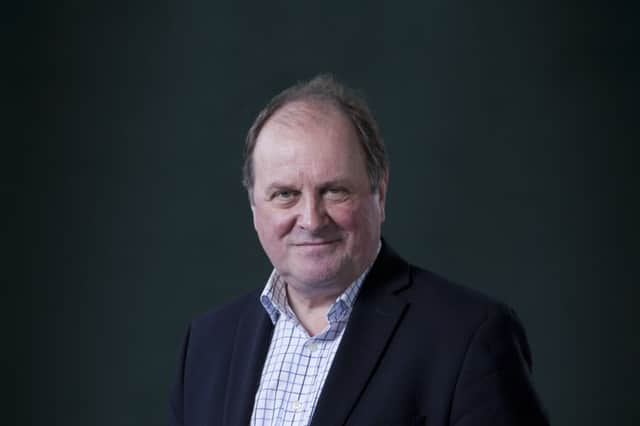James Naughtie: UK political system “breaking down”


Naughtie described this year’s general election as “an election which didn’t settle anything, it threw the whole thing into a state of flux”. The sweeping changes witnessed at the ballot box – the rise of the SNP and Ukip, the fall of Labour and the Liberal Democrats – were symptomatic of wider shifts which are shaking the foundations of political life.
How the SNP turned the “decisive defeat” of the Scottish independence referendum into a Westminster landslide is only one aspect of that story. Ukip, though it won only one seat, garnered four million votes. “What we have to cope with is that all the systems are breaking down. In 1964, the number of people who voted for one of the two main parties was 94 per cent, now that figure is in the low 60s. The idea that the two main parties will recover and win back the ground that has been lost is one for the birds – it’s not going to happen.”
Advertisement
Hide AdHe said that the nature of political debate was changing, thanks to speed of the spread of information via social media, and the indiscriminate nature of the comments which can be made. “It has changed the whole nature of democratic debate. I’m not going to say the information revolution is a bad thing, because information is power, but the political system is struggling to cope with this different kind of scrutiny.”
He would not be drawn on a potential Jeremy Corbyn victory in the Labour leadership election, though he did refer, in a later slip of the tongue, to “the Jeremy Corbyn election”. He compared the current candidates with the five heavyweights who threw their hats into the ring after the resignation of Harold Wilson in 1976, and encouraged us to consider “the way our politics is peopled today”.
And he weighed in briefly on the stooshie which has raged since Nick Robinson’s Book Festival appearance last week where he compared SNP protesters at BBC coverage of the referendum debate to something from “Putin’s Russia”, comments which Alex Salmond then described as “disgraceful”. Naughtie said: “It’s weird that Salmond would waste time pursuing that argument a year on.”
On the bright side, the changes in politics have created a wide open agenda, with the time ripe for decisions on Scotland, on Europe, on the House of Lords, and on the mechanics of democracy itself. He called for “grown-up political argument” in the months and years to come.
One of the joys of the Book Festival is the way the mood changes between events. Little more than an hour before we considered politics with Naughtie, a happy sell-out audience was listening to novelist Patrick Gale speak about his latest book, A Place Called Winter. It’s a departure from his usual fiction, a historical novel set in Canada, based on the story of his great-grandfather who emigrated to Winter, a small town North-west of Saskatoon.
As the railway opened up the interior of Canada, Harry Kane left England to become a homesteader, a scheme by which settlers were granted 160 acres of prairie on the condition that it would be fully cultivated within three years. But a mystery hung over why Harry went: unlike most homesteaders, he had personal wealth, and was married with a wife and child. Gale followed traces of Harry through his grandmother’s letters, records held in Canada, and a haggard face in a family photograph, applying his novelist’s intuition, and finding, in the gaps, his own explanation of Harry’s life.
Advertisement
Hide AdHis story touches on the lives of the Plains Cree, who were confined on reservations as the settlers advanced. Gale was shocked to discover the history he’d read as a child lied about the systematic brutality of the colonists, who were actually engaged in what he described as “a slow motion genocide”. A Truth and Reconciliation report has recently been published in Canada about the “residential schools” to which Indian children were taken, separating them from their families, language and culture.